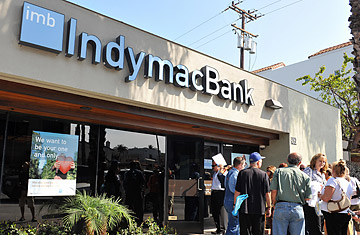
Large swaths of mortgages were bundled, chopped up and sold in pieces to investors around the world. When mortgages are made more affordable by changing loan terms, investors take a hit — which is why the terms of many securitizations restrict modifications. JPMorgan Chase recently announced a big loan modification effort, but it only applies to mortgages the company still owns: 22% of the total loan volume it services.
Still, it's not impossible to rewrite the terms of securitized loans. Ocwen, one of the country's largest servicers of subprime loans, has modified 14% of the loans it services as of the end of September. The company uses a sophisticated computer model to figure out how much a homeowner is going to be able — and willing — to pay. Data going into that calculation ranges broadly, from further projected house price declines in an owner's area to what industry he works in as a way to figure out the likelihood of job loss.
If those future estimated payments are worth more than the money that would be recouped from foreclosure, the modification goes forward. If not, foreclosure starts. "We've successfully answered the main concern by investors [in securitized mortgages], which is, Will my return on investment be better or worse with loan modification?" says CEO William Erbey.